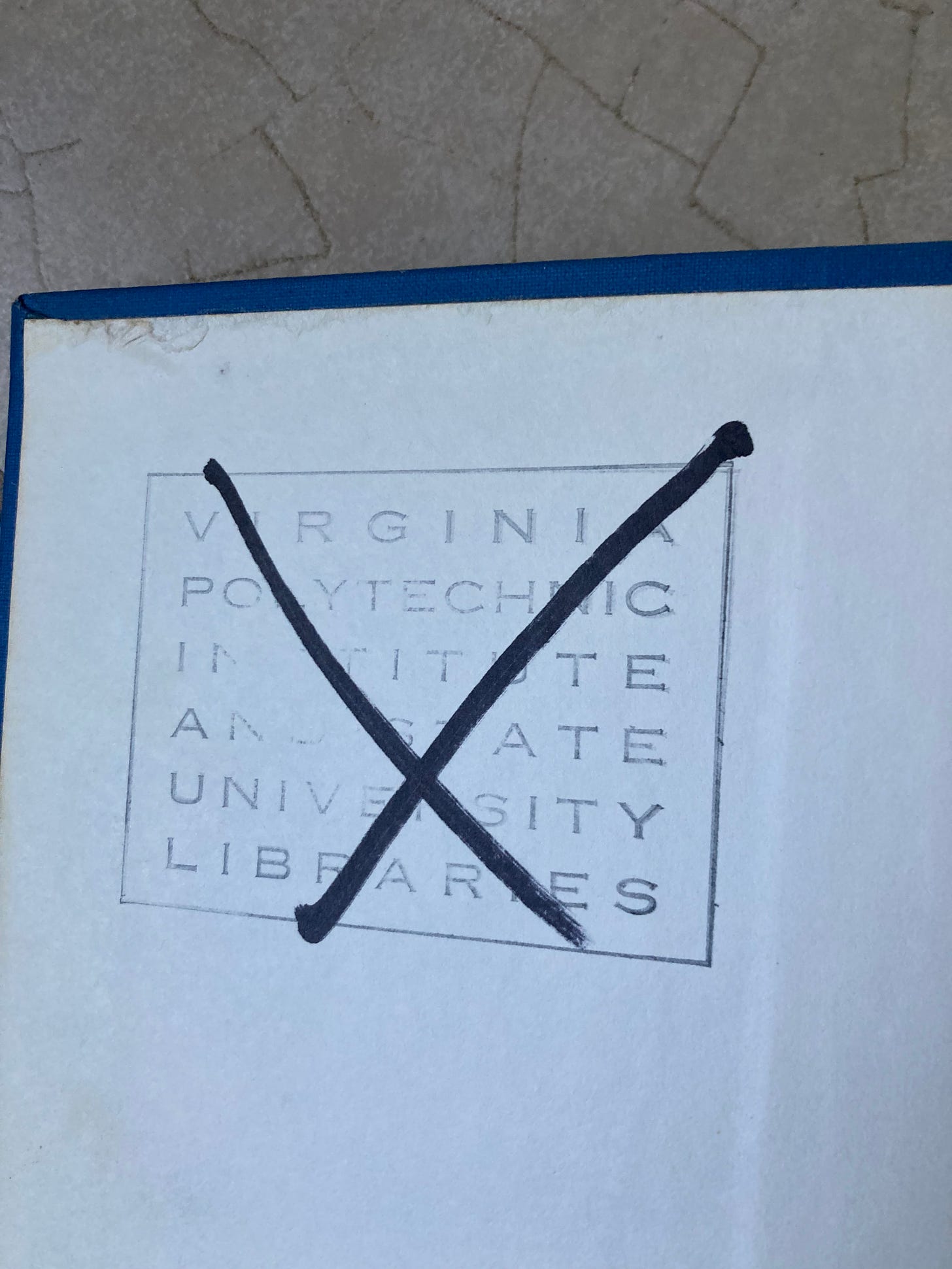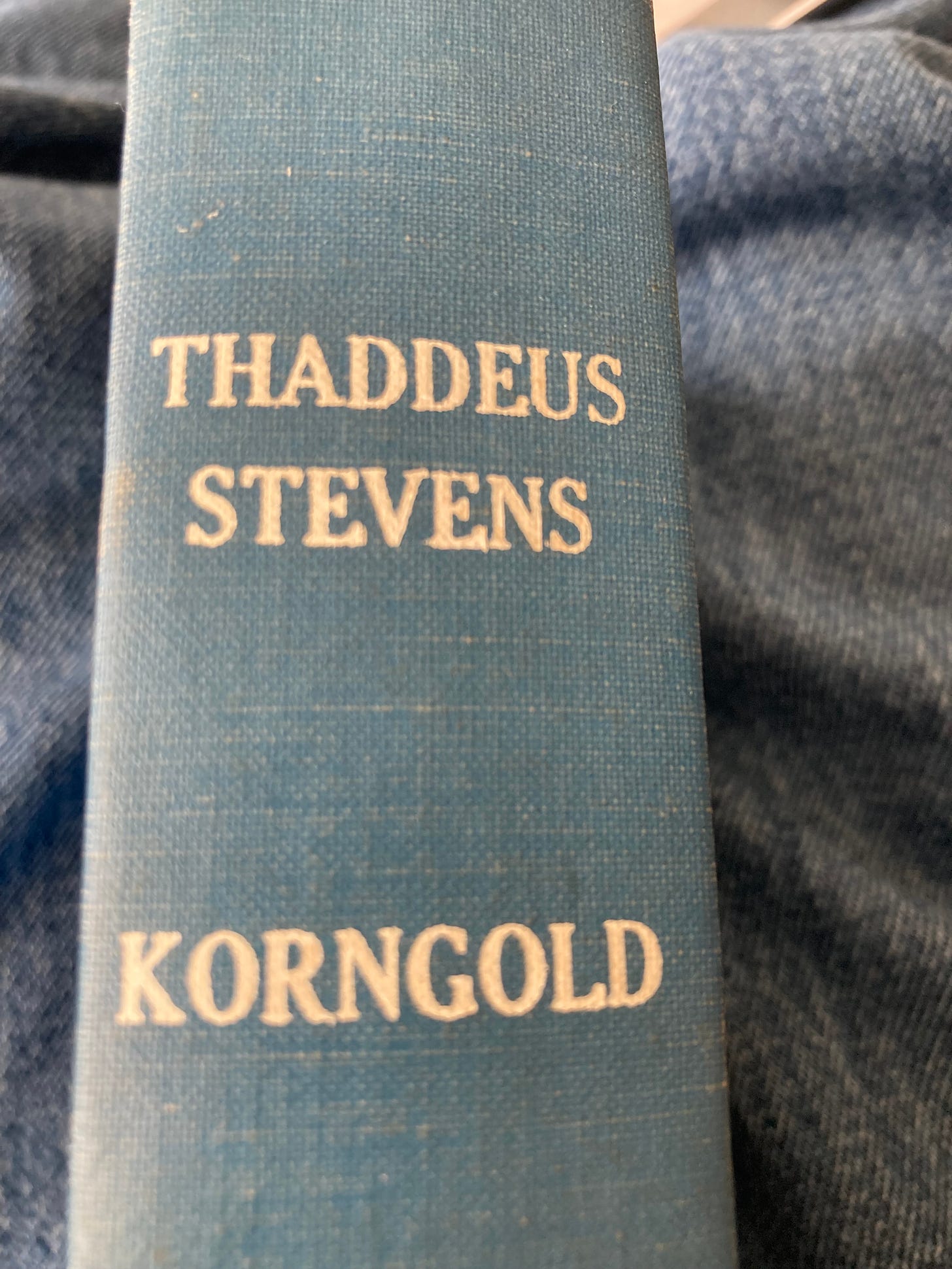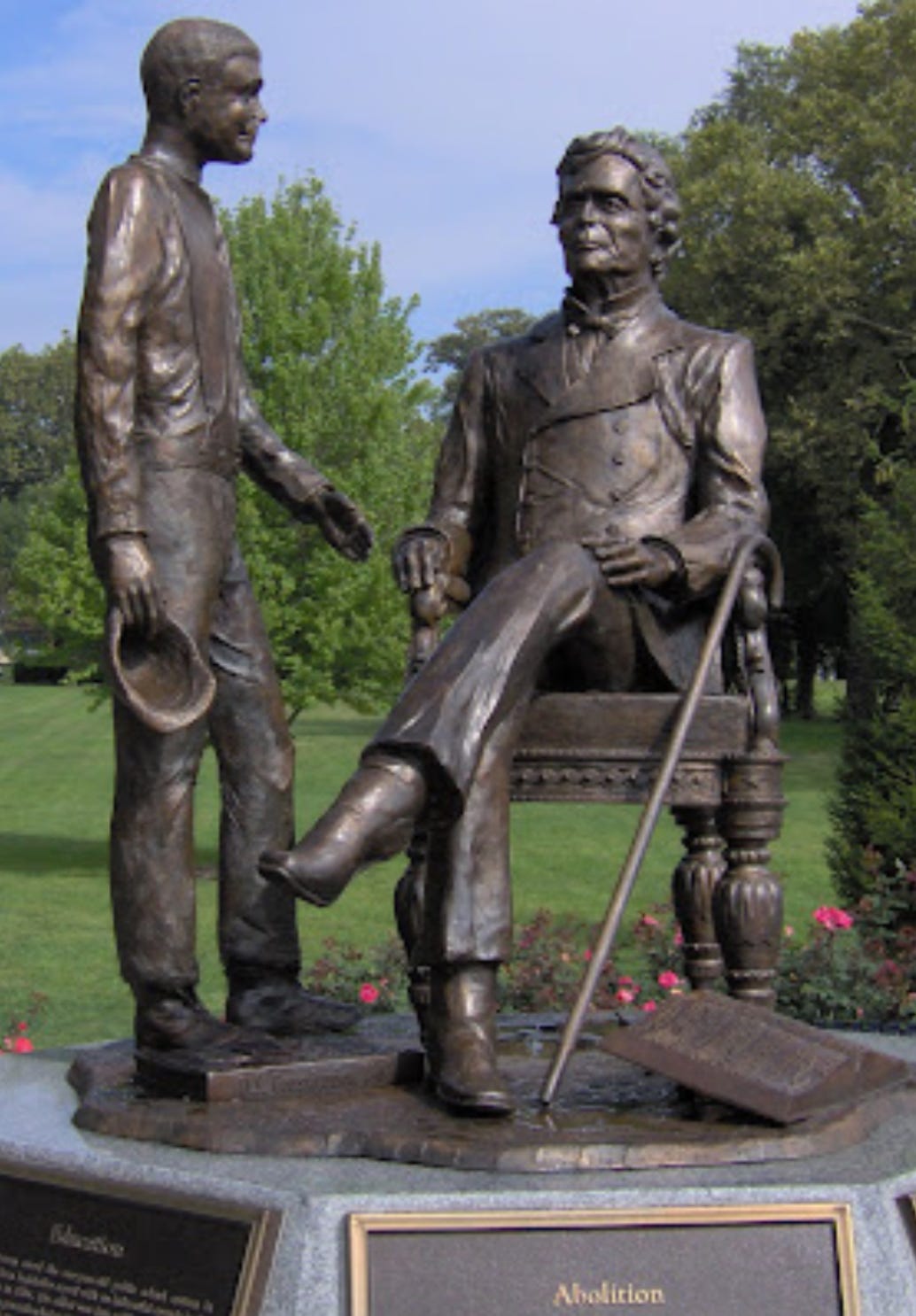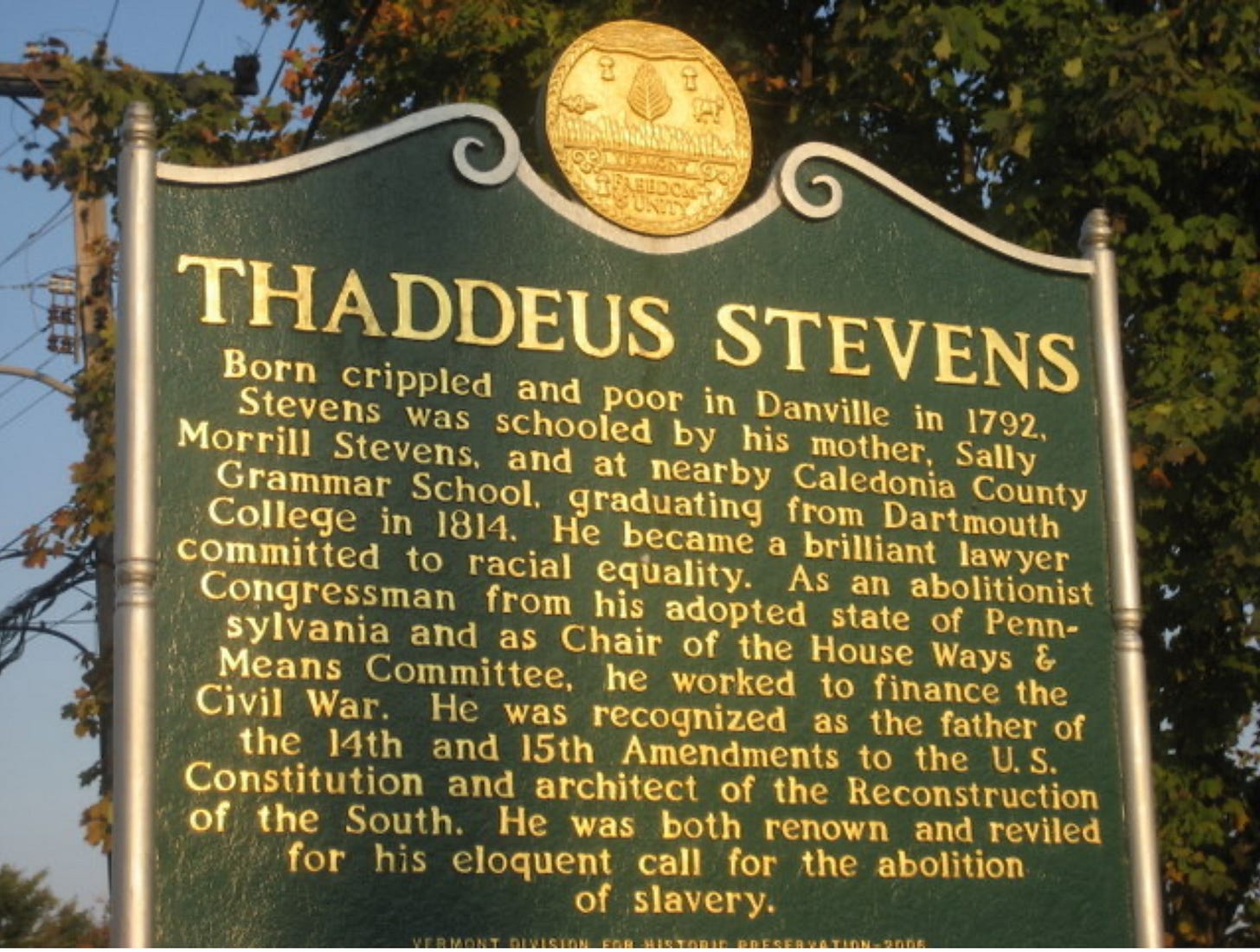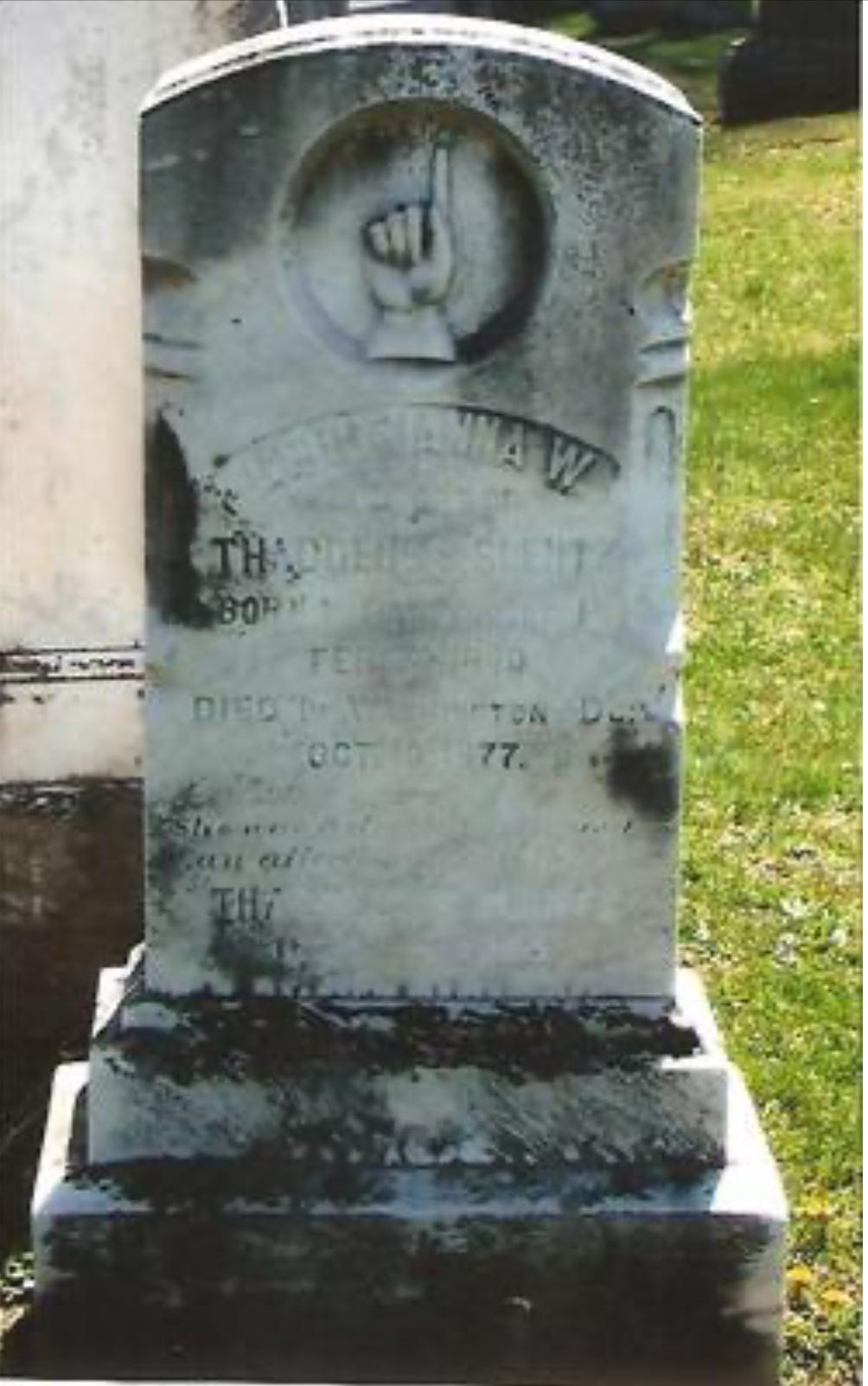“If one mentions Thaddeus Stevens to the average American one is likely to receive a questioning look. Few have ever heard of him. Those who have, have a vague recollection that he was a Civil War figure—a senator or a representative—who during the war was a ‘thorn in Lincoln’s side’….” (Ralph Korngold, 1955, p.vii)
*
From Korngold (1955):
“When the impeachment proceedings began he [Thaddeus Stevens] stood on the brink of the grave. Clemenceau, who often had the opportunity to observe him from the press gallery, has written: ‘He used to sink down on his seat, and except for the fiery blaze of his eyes, deep set under his high bald forehead, one might sometimes have fancied that he died….Once in a while he rose, the members gathered round him…
“For this, the last great battle of his political career, he must have summoned all his reserve strength. The New York Times informs us that ‘Mr. Stevens took his place looking better than usual.’ Speaker Colfax warned first the galleries, then those on the floor that there must be no demonstration either of approbation or disapprobation. Then he nodded to Stevens who rose and said: ‘I am directed by the Committee on Reconstruction to present to the House a report with an accompanying resolution which I ask the Clerk to read.’
“The clerk read the short report, then the solemn words: ‘Resolved, That Andrew Johnson, President of the United States, be impeached for high crimes and misdemeanors in office.’” (p.416)
*
“At half-past four on Monday, February 24, Stevens took the floor to make the closing argument. He had been resting in an adjoining committee room while speaker followed speaker. He now entered leaning on the arm of a colleague, amidst what Harper’s Weekly has called a ‘death-like silence.’ …His eyes roamed for a moment over the crowd, then he…began to read…
“‘Andrew Johnson is charged with attempting to usurp the powers of other branches of the Government; with attempting to obstruct and resist the execution of the law, with misprision of bribery, with the open violation of the laws which declare his acts misdemeanors, and with removing the Secretary of War without the advice of the Senate.’” (p.417).
*
*
Who goes there?
On yonder parapet,
Horatio,
it was his very likeness…




